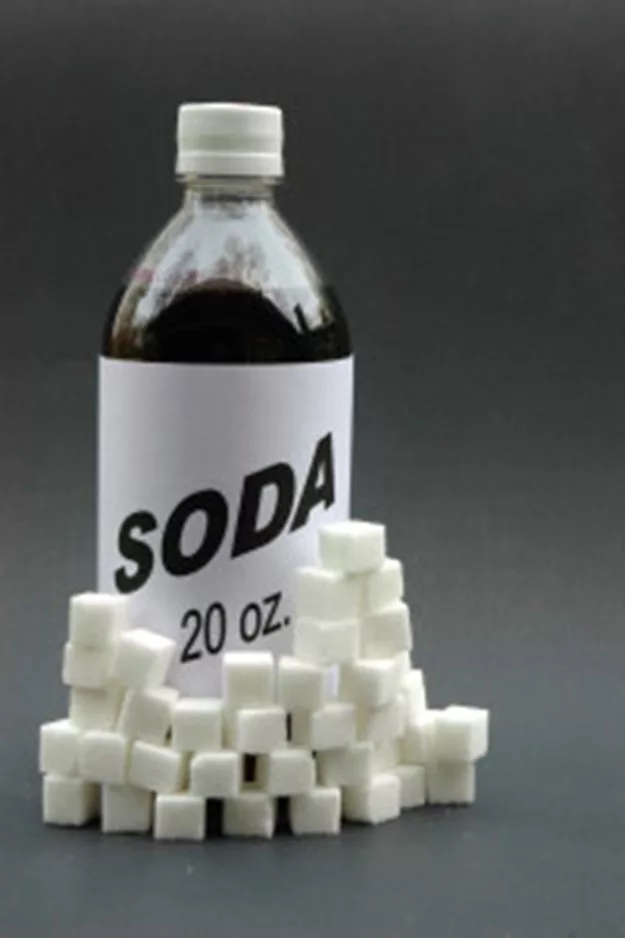Welcome »
WHAT YOU SHOULD KNOW ABOUT SUGAR
Posted by Cyril Grither on June 21, 2023


What you should know about sugar
Lately, sugar has been the subject of a lot of negative attention. In the United States, several cities have tried to ban the extra-large format of soft drinks. The Canadian Diabetes Association and some municipalities would like sugary drinks to be taxed. Furthermore, various articles report that certain types of sugar are more harmful than others. In the newspaper New York Times, an article even titled “Is sugar toxic? ".
In this context, what do you need to know to make healthy choices without stressing out?
As with most foods, consuming too much sugar can have adverse health effects., explains Kathleen Turner, professional dietitian at Prevention and rehabilitation center from the University of Ottawa Heart Institute.
“Excessive consumption of sugar can increase the risk of heart disease, stroke, obesity, diabetes, cancer and dental caries,” she continues. And in people with diabetes or obesity, cardiovascular risk is increased.
Some essential points about sugar
Sugar is a type of carbohydrate that provides energy but has no other nutritional qualities, unlike other types of carbohydrates like starches and fiber. There are two types of simple sugar: monosaccharides, made up of a single molecule, which include glucose and fructose, among others, and disaccharides, made up of two monosaccharides, such as table sugar, maltose and lactose.
“Overall, the various types of sugar have similar effects on our bodies, as long as we do not exceed the recommended amounts,” explains Kathleen Turner.
The sugar we consume is either present naturally in the foods we eat (such as fruits and dairy or grain products), or added during the manufacturing of food products, or during cooking or any other preparation, even if only when you sweeten your coffee. These added sugars, and other concentrated forms, like syrups, honey and fruit juices, are the ones to be wary of.
“Naturally sweetened whole foods have other nutritional benefits like fiber, vitamins, fat or other types of carbohydrates,” says Kathleen Turner. They are healthy because they are composed of various nutrients that cause a feeling of satiety and therefore help limit the amount of food ingested.

It's easy to overconsume sugar; it is present, sometimes in very large quantities, in soft drinks and prepared foods, but also in some of our homemade recipes. According to the Heart and Stroke Foundation, 13 % of total calories comes from added sugar.
The risk of death from heart disease or stroke is 30 % higher in people whose total caloric intake includes 10 to 25 % of added sugar, compared to people whose intake is less than 10 %. When this rate exceeds 25 %, the risk almost triples, again according to the Heart and Stroke Foundation.
When it comes to excess sugar, sugary drinks, like soda and juice, are the main culprits.
“Liquid calories that come from these types of drinks, as well as energy drinks or vitamin water, quickly reach critical levels,” notes Kathleen Turner. A 355 mL high-sugar soft drink alone contains about 10 teaspoons (40 g) of sugar; it is therefore very easy to exceed the recommended intake. What's more, they offer no health benefits.
The recommended daily sugar intake varies depending on each individual's energy needs and metabolism.
According to recommendations from the World Health Organization and the Heart and Stroke Foundation, daily added sugar intake should be no more than 10 % of total calories, and ideally less than 5 % . This means that for a total intake of 2,000 calories per day, the amount of added sugar should not exceed 50 g (12 teaspoons).
Reduce your sugar consumption
“Reduce the amount of sugar in your recipes and coffee, buy fewer prepared foods, avoid sugary drinks, including soda, sugary vitamin waters and juices,” recommends Kathleen Turner. Some evidence indicates that consuming less added sugar may even help reduce the risk of chronic disease. »
She suggests cooking more often using fresh produce and eating whole foods. And, when it is not possible to prepare your own meals, look at the quantity of sugar indicated on the label.
High-fructose corn syrup has received particular attention from the media. It is widely used in the food industry. But according to Kathleen Turner, there is currently no evidence to confirm that this syrup is more harmful than other types of sugar.
“The most important thing is to reduce your total sugar consumption, regardless its source. Sucrose is not best than fructose. It’s the overall contribution that counts, whatever its origin,” she insists.
Excess calories are stored as fat which increases the risk of obesity, heart disease, diabetes and cancer.
To reduce our sugar intake, we need to cook more at home, use less processed foods, eat a variety of whole foods, and reduce the amount of added sugar, by watching our recipes or avoiding sugary drinks, for example. . To find tips for eating better
Source ottawaheart.ca